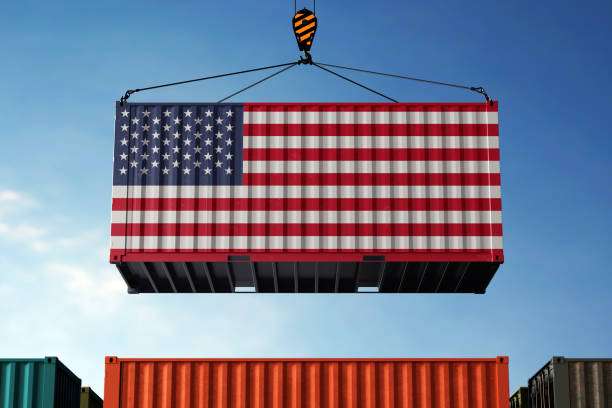MUHAMMADIYAH.OR.ID, YOGYAKARTA — U.S. President Donald Trump’s controversial trade policy, which raised import tariffs on products from partner countries, has sparked concern over the stability of international trade and its long-term repercussions. This policy shift has affected not only U.S. trade partners but also the global economic balance, including Indonesia.
Chairperson of the Muhammadiyah Department of International Relations and Cooperation Imam Addaruqutni explained that Trump’s trade policy is part of a government-to-government (G to G) approach and has affected many countries worldwide.
Imam stated that the rationale behind the tariff increases was the U.S. government’s ambition to establish global economic fairness or “rebalancing,” as well as to reinforce its broader national agenda, “Make America Great Again” (MAGA). These motives, he suggested, lie at the heart of the U.S. administration’s decision to impose higher tariffs on goods entering the American market.
“It’s important to consider the broader context of Trump’s trade tariff policy. I believe this is part of the MAGA agenda. One of the issues is America’s trade deficit in several international trade sectors, particularly with China,” said Imam on Saturday, April 26.
Imam pointed out that the U.S. imports more goods, particularly in manufacturing and high-tech sectors, from China than it exports.
“Chinese products are cheaper, and their quality continues to improve. This imbalance makes the U.S. feel the trade relationship is unfair,” he explained.
Imam also referred to a statement by Indonesia’s Coordinating Minister for Economic Affairs, Airlangga Hartanto, who raised concerns about non-tariff barriers in talks with the U.S. Imam noted that the overflow of Chinese products affects not only the U.S. but also Indonesia. He emphasized that widespread copyright and intellectual property violations, often involving pirated Chinese goods, have caused significant losses, especially to the U.S.
Imam mentioned that, while the U.S. aims to protect its economy through tariffs, the policy could backfire.
“This could also harm the U.S. itself. American exports may face obstacles, and in response, China has raised its own tariffs, leading to complaints from U.S. exporters,” said Imam.
Imam concluded by calling for more balanced and cooperative global trade.
“We should avoid a world dominated by one economic power. What’s needed is balance and a more persuasive, cooperative approach between countries,” said Imam.








